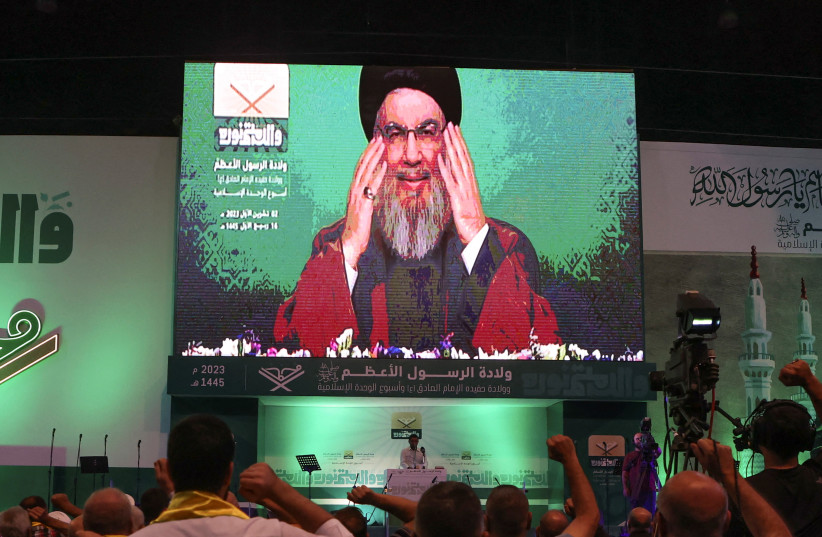The IDF and Hezbollah exchanged several rounds of attacks over the weekend, while the terror group’s chief Hassan Nasrallah, and Defense Minister Yoav Gallant exchanged threats.
Nasrallah noted that “Israel has not achieved any accomplishment that it can present to its citizens; they are still unable to present an image of ‘victory’ or an image of ‘defeat’ to the resistance.”
This echoed a similar statement Nasrallah made last week, “The war has expanded to more than one front – we salute the armies of Iraq and Yemen that have entered this blessed battle. There is no more legitimate and justifiable battle from a humanitarian, moral, and religious perspective than the battle against the Zionists.”
Earlier, three IDF soldiers were seriously injured by an anti-tank missile fired into the Manara region.
Gallant warned Hezbollah on Saturday that if it escalated fighting along the border it would be making a historic mistake.
“Hezbollah is close to making a grave mistake – the residents of Beirut could end up just like the situation in Gaza, where they are already raising the white flag and fleeing their houses,” said the defense minister.

Israel strikes back
Late Saturday night, the IDF attacked Hezbollah targets in Lebanon and targets in Syria. This came after a Hezbollah terrorist cell attempted to launch anti-tank missiles toward Israeli territory in the area of Aramshe on Saturday afternoon and after two rockets were fired from Syria into Israel Saturday night.
In addition, an IDF tank struck the cell in Lebanon which fired at Israel on Saturday afternoon, the military and the Shin Bet (Israel Security Agency) said.
Earlier in the day, an aerial object was identified crossing into Israeli territory in the area of Kabri, northern Israel, and was shot down.
Two other suspicious aerial targets were intercepted in the area of the border with Lebanon.
Two mortar shell launches and anti-tank missiles were fired from Lebanon toward IDF posts in northern Israel. IDF artillery struck the source of the launches alongside a Hezbollah terror infrastructure.
Mid-morning, sirens sounded in northern Israel warning of a suspected hostile aircraft intrusion. However, no aircraft were ultimately identified as having infiltrated Israeli airspace, the IDF said.
Earlier in the morning, a rocket was fired from Lebanon into Israel. However, the projectile fell into an open area in the Margaliot area. A building in Kiryat Shmona was hit.
Overnight Friday, a missile from Lebanon targeted an IDF aircraft operating in the border area. An Israeli UAV hit the launcher that fired the missile.
Overnight, a missile launch was identified toward an IDF aircraft operating in the Lebanese border area, but an IDF UAV struck the launcher.
Also overnight, the IDF said that Israeli fighter jets struck several Hezbollah infrastructure installations in Lebanon, including a launcher from which missiles were fired at the area of Margaliot in northern Israel.
In other remarks Saturday night, Nasrallah slammed the US, “The one who can stop the aggression is the one who manages it – the United States. The one who manages and decides this battle is the American government, and all pressure must be directed towards the Americans.”
Maariv contributed to this report.
